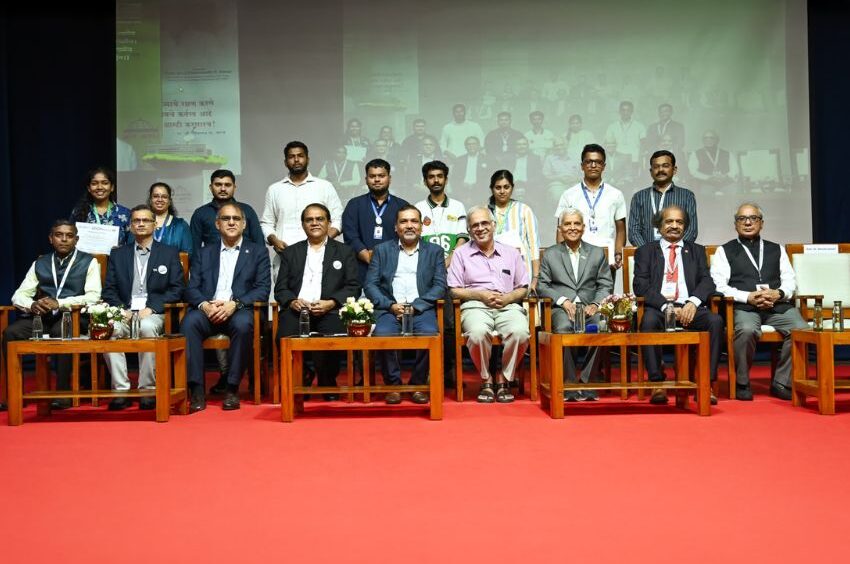MIT-WPU’s NSRTC 2025 Concludes With Focus On AI, Sustainability, And Scientific Collaboration

The 2nd National Scientists’ Round Table Conference (NSRTC 2025), hosted by MIT World Peace University (MIT-WPU), concluded in Pune this week, bringing together over 70 leading scientists, including 36 recipients of the Shanti Swarup Bhatnagar and Padma awards. The three-day event served as a platform for interdisciplinary dialogue on science, technology, and innovation in the context of national development.
Structured around four key themes – Artificial Intelligence, Advanced Materials and Processing, Digital Transformation and Sustainability, and Healthcare, Pharma and Biotechnology – the conference aimed to foster collaboration across scientific disciplines and institutions.
The Artificial Intelligence sessions explored the role of AI in emerging technologies such as quantum computing, astronomy, 6G networks, and multilingual applications. Experts also discussed AI’s potential to contribute to future scientific theories and breakthroughs.
In the Advanced Materials and Processing track, researchers shared developments in solar energy, 2D materials, nanotechnology, and circularity in metals. Noteworthy discussions included the use of “Black Gold” nanomaterials to reduce CO₂ emissions and the need to explore alternatives beyond lithium-ion battery technology.
The Healthcare, Pharma and Biotechnology sessions addressed AI-enabled drug discovery, biomaterials, regenerative medicine, and pandemic preparedness through the One Health approach. Lifestyle interventions for reversing type 2 diabetes, and innovations in diagnostics for diseases like cancer, HIV, and tuberculosis were also highlighted.
Under Digital Transformation and Sustainability, speakers covered India’s potential in nuclear energy, innovations in green chemistry, and climate-resilient agriculture. Research on salt-tolerant rice varieties and the link between energy consumption and the Human Development Index (HDI) received particular attention.
The conference also included thematic reflections on the intersection of science and philosophy. Addressing students and researchers, Vishwanath D. Karad, Founder of MIT Group of Institutions, and Ashutosh Sharma, former Secretary of the Department of Science and Technology, stressed the importance of integrating ethical and societal considerations in scientific progress.
Rahul V. Karad, Executive President of MIT-WPU, said the university’s goal through NSRTC is to nurture original thinking and inspire the next generation of scientists. He noted the active participation of over 600 students in interactions with more than 100 scientists during the conference.
Organisers said NSRTC 2025 marked a significant step in building a collaborative, future-ready scientific community aligned with India’s innovation goals.





































































































































































































































































































































































































































































































































































































































































































































































































































































































































































































































































































































































































